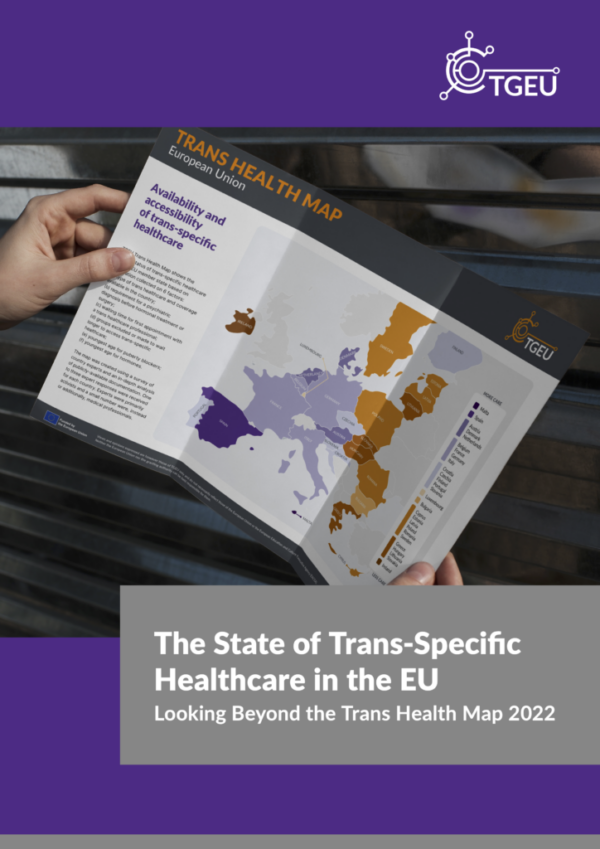Health and depathologisation

Everyone deserves quality healthcare. Including trans people. However, many trans people do not see a doctor at all. This is due to many factors, such as fear of discrimination.
Accessing trans-specific healthcare is often even more difficult.
What is trans-specific healthcare (TSHC)?
Trans-specific healthcare (TSHC) is medical care that brings sex characteristics into alignment with a person’s internal self perception. It is designed to support and affirm a person’s gender identity. It is also sometimes called gender-affirming care.
Common examples of trans-specific healthcare include:
- Hormone replacement therapy (HRT)
- Puberty blockers
- Top surgery
- Bottom surgery.
The type of care a person receives depends on their needs and desires. Access to trans-specific healthcare is essential. However, trans-specific healthcare is not one size fits all. Each person should be supported in determining and accessing the level of care that is right for them.
How hard is it to access trans-specific healthcare?
Access to trans-specific healthcare depends on many factors. This often changes country-to-country based on laws and policy. However, it is also affected by insurance.
In many cases, access to care is harder for certain people. This includes trans people who are minors or who have disabilities.
Some countries also rely on a pathologised model. This means that access to certain healthcare requires a psychologist’s note. This is also sometimes the case for legal gender recognition.
We always advocate for depathologisation.
What is depathologisation?
Depathologisation calls for trans identities to be delisted as a mental disorder. It refers primarily to medical guidelines and procedures.
Depathologisation and access to trans-specific healthcare go hand-in-hand. When access to healthcare is barricaded behind a diagnosis, it is not accessible.
What does TGEU do?
TGEU advocates for accessible trans-specific healthcare and full depathologisation of trans identities. We perform research to understand the state of trans-specific healthcare. Based on this, we work to address gaps in trans people’s access to healthcare.
We also contributed to removing trans identities from the mental health section of the IDC-11. Now, we advocate for medical systems that rely on the updated IDC-11, and laws that reflect this.
Main information
Press RELEASES
see morePUBLICATIONS
see moreTrans Health Map 2022: The State of Trans Healthcare in the EU
read moreLegal Action
see moreCalling For Complete Depathologisation of Trans and Gender-diverse Identities
read moreInternational Day of Action for Trans Depathologisation
read moreJoint Statement for Depathologisation and TDoR 2018
read moreStatement on the International Day of Action for Trans Depathologization 2017
read moreJoint Statement: Key Populations and European HIV Hepatitis Testing Week 2017
read more









